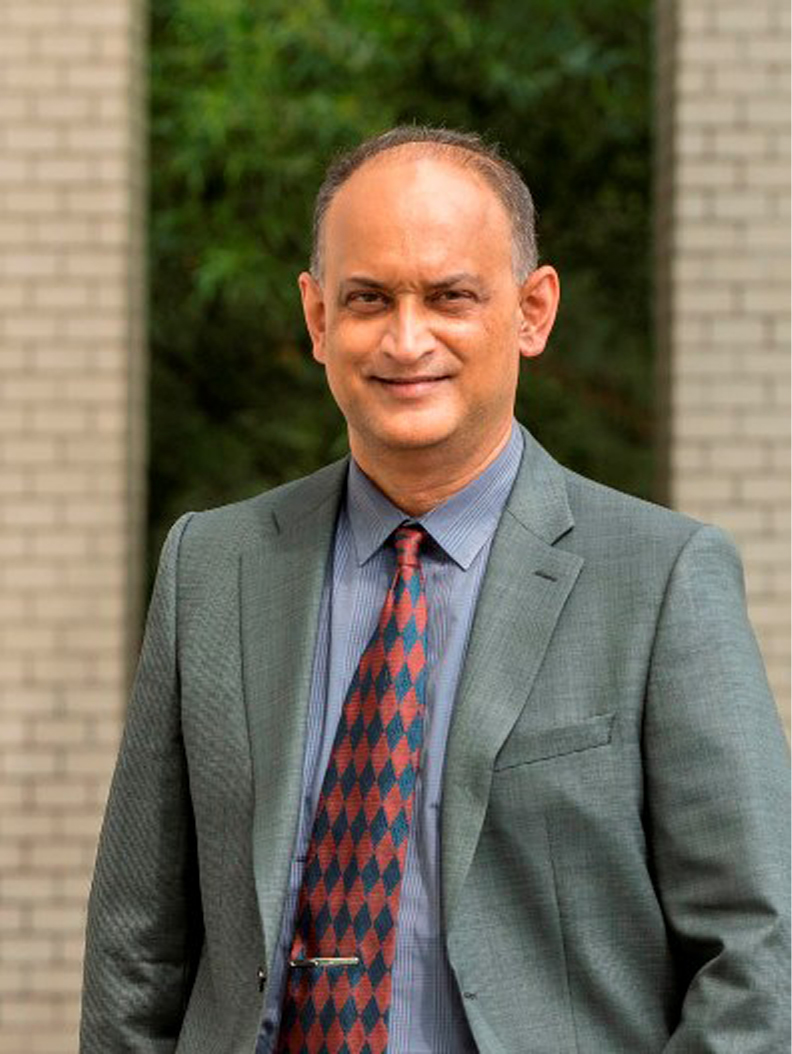
Prof Shalendra Sharma
In his webinar presentation, titled The Post-COVID-19 World: Autocracies, Democracies and the New World Order, Prof Shalendra Sharma, Lingnan University’s Associate Vice President (Academic Quality Assurance and Internationalisation), and Lee Shau Kee Foundation Chair Professor of Political Science, examined two interrelated questions which are the subject of much debate among political scientists.
First, which political systems - democratic, illiberal or authoritarian rule – have most effectively addressed the needs of their citizenry during the coronavirus pandemic? And, second, in the emerging post-COVID world, will the “China model” threaten the dominance of the post-war liberal international economic and political order?
Political systems versus COVID
When evaluating the ways in which different regime types initially reacted to the pandemic, political scientists have largely used a simple yardstick, Prof Sharma explained. “They’ve said, what we want to look at is the number of deaths relative to population size.”
It seemed that democracies, in particular the US, UK, Italy and Spain (and now India), with their deliberative policy-making and multiple veto points, had some of the worst records. While the performance of China, Vietnam and Singapore, seemed evidence of “authoritarian efficiency”.
But then, when the struggles in Russia, and the very low infection and mortality rates in places such as Taiwan and New Zealand, are considered, the picture is much less clear.
Prof Sharma pointed to four factors, beyond the regime in place, which he believes determine a nation’s resilience to such a crisis. They are: competent executive leadership; competent bureaucratic and administrative capacity, and the ability to implement policy relatively independent from political and societal pressure; a robust public health care system with universal access to affordable care; and, finally, public trust and confidence in the political leadership and government.
Prof Sharma then went on to look at some countries in more detail.
He began with China, a party-state in which a system of state-capitalism has delivered rapid economic growth. Because the needs of a significant proportion of the population are being met, there are high levels of trust in the government.
Following the SARS outbreak in the early 2000s, changes were made to the national healthcare system, with Beijing mandating on one, currently highly relevant, initiative. “If there is a novel influenza virus, or coronavirus, [outbreak,] that has to be reported directly to the central government, with health officials receiving alerts on their cell phones,” Prof Sharma explained.
However, despite this, and notwithstanding the effectiveness of the eventual lockdown in Wuhan, three months elapsed between the first reports in Chinese media of a new coronavirus strain and the public acknowledgement by President Xi, on 23 February 2020, of the existence of COVID-19 on Chinese soil. That is when he identified the virus as the “largest-ever public health emergency” and “a big test” for the country.
Taiwan, characterised as an administrative-democratic region, has put up a remarkable performance during the pandemic, with only 10 reported COVID-related deaths up to April 2021, Prof Sharma noted.
Having learned important lessons from the SARS outbreak in 2002, the Taiwanese authorities reacted incredibly quickly to the first news of a novel coronavirus on the Mainland. One key feature of the official response was the introduction of a very extensive health-tracking system.
Judgement of the response of the American liberal democratic-state to the pandemic has had to factor in the unique personality of former President Trump, Prof Sharma said.
The paradox within the US federal system is that power is simultaneously concentrated and dis-aggregated. However, although Trump took on extensive “wartime powers” during the crisis, he chose not to use them. “Without clear direction from the top, local-level (government) – at city- and state-level - began to go in its own directions.”
Despite the US spending around 17 per cent of its GDP on healthcare, this inaction, combined with the political polarisation between the Republican and Democratic parties, and widespread distrust of government, led to a lack of compliance with effective pandemic control measures, in many areas, with disastrous repercussions.
Will we emerge from the pandemic with a new world order?
When it comes to coping with the pandemic, the theory that democracies are bad at avoiding crises but good at recovering from them is widely accepted, Prof Sharma pointed out.
But what effect will the pandemic, and its aftermath, have on the already strained relations between the West and China?
The Pew Research Center’s survey of Americans has seen a dramatic rise in “unfavorable” views of China since 2005, and another of their reports has seen a sharp worldwide increase in “unfavorable views’ regarding Beijing’s handling of the pandemic. And the departure of Trump is unlikely to herald a thawing in relations between the US and China, as US liberals have always seen autocracies as an existential threat. “It is the Biden administration that has said Beijing is a strategic rival,” Prof Sharma noted.
The re-invigoration of the “Quad”, the US military alliance with the strategically-placed democracies of India, Japan and Australia, and, in particular, the ending of American “strategic ambiguity” regarding Taiwan sovereignty, are highly likely to further ratchet up Sino-US tensions, Prof Sharma concluded.


